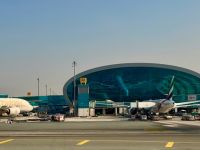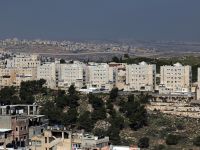As Israel completes its withdrawal from south Lebanon, ending nearly 20 years of occupation, new business challenges and opportunities emerge. Much of these consequences will depend largely upon the political and security situation that arises in South Lebanon in the near future.
An escalation of tension and violence in south Lebanon will have considerable associated economic costs. For instance, the damages of Israel’s attacks on Lebanese infrastructure earlier this year were estimated at over $700 million, costs Lebanon’s feeble economy can hardly afford to bear. The most serious predicament plaguing the country’s economy is its spiraling net public debt, which rose to $20.438 billion in March 2000, up over 15 percent versus the same period a year earlier.
In an attempt to curb it ballooning public debt, which now represents over 120 percent of GDP, the Lebanese government is attempting to replace high-yielding Lebanese pound treasury bills with Eurobonds. Within the framework of this scheme, Lebanon is planning to launch a $400 million Eurobond in June. Merrill Lynch and Morgan Stanley are fighting for the role of the issue’s lead manager.
Finance Minister Georges Corm has repeatedly promised to increase the proportion of public debt that Lebanon finances externally to 35 percent from the present 25 percent. Twelve months ago, the government was paying interest of over 16 percent to holders of two-year T-bills, the longest-dated domestic debt. In comparison, it could issue five-year dollar Eurobonds at a rate of merely 8.625 percent. However, this interest rate gap has narrowed significantly over the past year. The average yield on two-year T-bills fell almost two percentage points last autumn to its current 14.14 percent, while Lebanon paid a 10.25 percent coupon on last September’s 10-year dollar Eurobond. Moreover, fears of escalating violence in south Lebanon might scare away potential investors, thus adding an extra premium to Lebanese debt.
In the event that the security situation in south Lebanon does subside, reconstruction plans could stimulate the country’s entire economy. Prime Minister Salim al-Hoss has scheduled a meeting for May 26 to discuss plans for reconstruction of the south. A recently issued report by the United Nations Development Program entitled “Regional socio-economic development program for south Lebanon” estimates that a total of $1 billion will be required for infrastructure works, assistance to agriculture and industry, environmental rehabilitation and human resource development. South Lebanon is sure to receive significant assistance from foreign donors. For example, the Italy-South Lebanon scheme, managed by the Italian embassy in Beirut, has allocated a $50 million-budget to address the region’s development needs.
Still, even a cessation of conflict will not, at least in the short-term, bring about the required stability for sustainable development. Moreover, future developments are not tied solely to actions of the Lebanese government, since other players are also active in the game. The lingering reality is that Syria, which maintains approximately 35,000 troops, remains the main power broker in Lebanon. It seems that without a comprehensive peace agreement between Syria and Israel, levels of violence in southern Lebanon will continue to rise and fall upon Syria’s command.
- Albawaba Middle East Business







